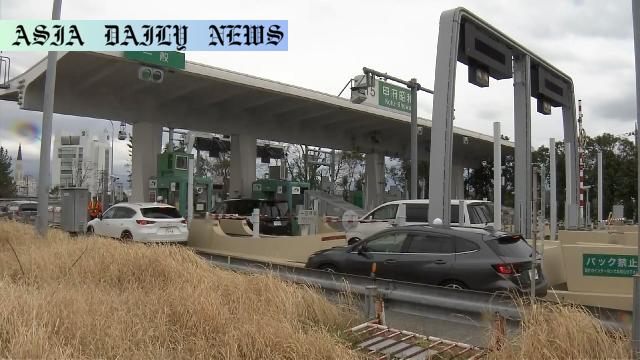Toll Glitch: Japanese expressway firm waives fees and refunds payments after widespread system failure disrupting toll gates.
- Key Point 1: Central Nippon Expressway Company experienced a system failure at over 100 toll gates on April 6-7.
- Key Point 2: About 450,000 drivers who paid tolls during the glitch will receive refunds as a sign of fairness.
- Key Point 3: The company declared it would not charge drivers who passed through the affected gates during the 38-hour outage.
- Key Point 4: The decision reflects customer-centered considerations and a positive response to operational challenges.

Background on the Toll System Glitch
On April 6 and April 7, the Central Nippon Expressway Company (NEXCO) faced an unprecedented challenge when their electronic toll collection systems malfunctioned for 38 hours. The failure, which affected systems in more than 100 toll gates across Tokyo, Aichi, and six other prefectures, resulted in significant disruptions to traffic flow and payments. To prevent congestion and allow drivers to proceed, the firm decided to open the toll gates temporarily, asking motorists to pay later. However, at a recent press conference, NEXCO’s President and CEO, Nawata Tadashi, announced a decision not to pursue pending payments and to refund individuals who paid at the gates during the failure.
Refunds and the Decision to Cancel Payments
The cancellation of toll charges applies to approximately 450,000 drivers, demonstrating the company’s commitment to addressing the issue with empathy and fairness. Individuals who paid by cash or credit card at the toll gates during the glitch will receive refunds. The decision stems from a desire to maintain fairness among all users of the toll gates, according to Nawata’s statement. Moreover, in a display of accountability and professionalism, the CEO offered a public apology, acknowledging the disruption caused by the system failure.
Considerations Driving the Company’s Decision
The choice not to collect pending payments was led by several factors. Firstly, the company’s desire to preserve user trust and ensure equal treatment for all customers played a significant role. Secondly, acknowledging drivers who attempted to pay during the glitch underscores a sense of accountability, customer focus, and goodwill. Lastly, refunding toll fees is a strategic move to reinforce a reliable image of the firm following an incident that could have otherwise impacted its reputation negatively.
Impact on Stakeholders and Future Measures
Central Nippon’s handling of the incident has garnered public attention and mixed responses. While many applaud the company’s customer-centered resolution, others believe it underscores the need for more reliable toll collection systems to avoid future disruptions. The firm has yet to detail the technical measures it will implement to prevent similar occurrences. This pivotal decision reflects broader industry trends, where organizations prioritize customer satisfaction while managing operational mishaps effectively. In the long term, such strategies may bolster brand loyalty and public trust.
A Lesson in Crisis Management
This incident serves as a critical case study in how businesses can handle unexpected crises. By opting to waive charges and extend refunds to affected customers, NEXCO demonstrates a commitment to transparency, fairness, and accountability. Such actions emphasize that even in the face of unforeseen challenges, prioritizing the customer experience can leave a lasting positive impression. Moving forward, the company’s proactive response could lead to further advancements in toll system security and efficiency.



Commentary
Learning from Central Nippon’s Approach
The Central Nippon Expressway Company’s decision to waive toll charges and offer refunds offers an insightful look into how businesses can make amends for operational crises. The system failure, which could have led to widespread frustration among users, was met with empathy and fairness. In the face of customer inconvenience, the firm chose transparency and goodwill as its priorities, which is commendable and perhaps sets a benchmark for similar industries to follow.
A Customer-Focused Strategy
By forfeiting pending payments and refunding those who paid during the glitch, the company demonstrated a genuine concern for its customers. Such decisions often involve significant financial implications, yet Central Nippon appears to have placed customer trust and satisfaction above immediate monetary recovery. This approach underscores the importance of maintaining a good relationship with the public, particularly in industries where reliability and efficiency are key expectations.
Room for Improvement and Future Measures
While the handling of the situation deserves praise, it is imperative to address the underlying issue: system reliability. As the refund initiative concludes, it is equally critical for Central Nippon to take proactive measures to ensure the robustness of its electronic systems. Investing in enhanced fail-safes, conducting frequent system checks, and providing alternative solutions during outages could help mitigate similar risks in the future.
Final Thoughts
Overall, this incident highlights the value of customer-first policies in maintaining a positive public image. While systems may fail, how a company responds can make a lasting difference. Central Nippon has illustrated that addressing stakeholder concerns transparently and empathetically can lead to long-term goodwill and customer loyalty. As other industries face similar unforeseen challenges, they could learn from this example and implement strategies that balance accountability, fairness, and future-proofing against disruptions.